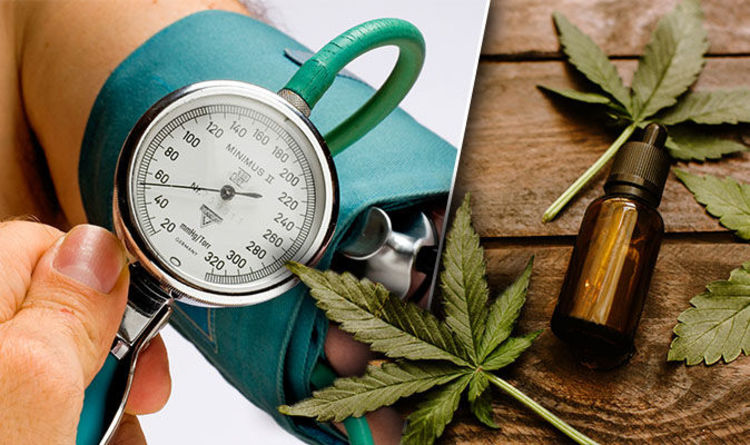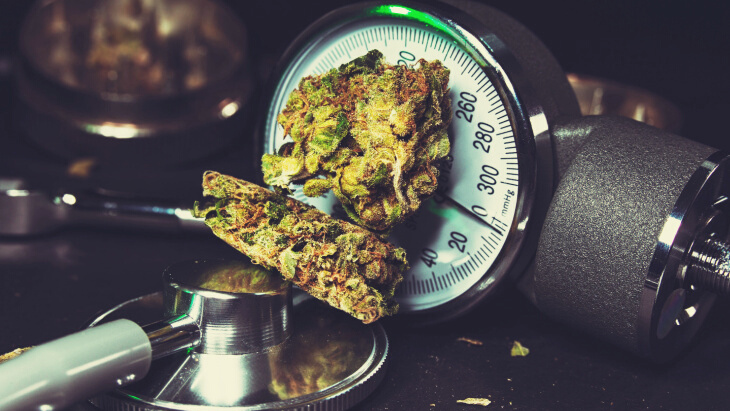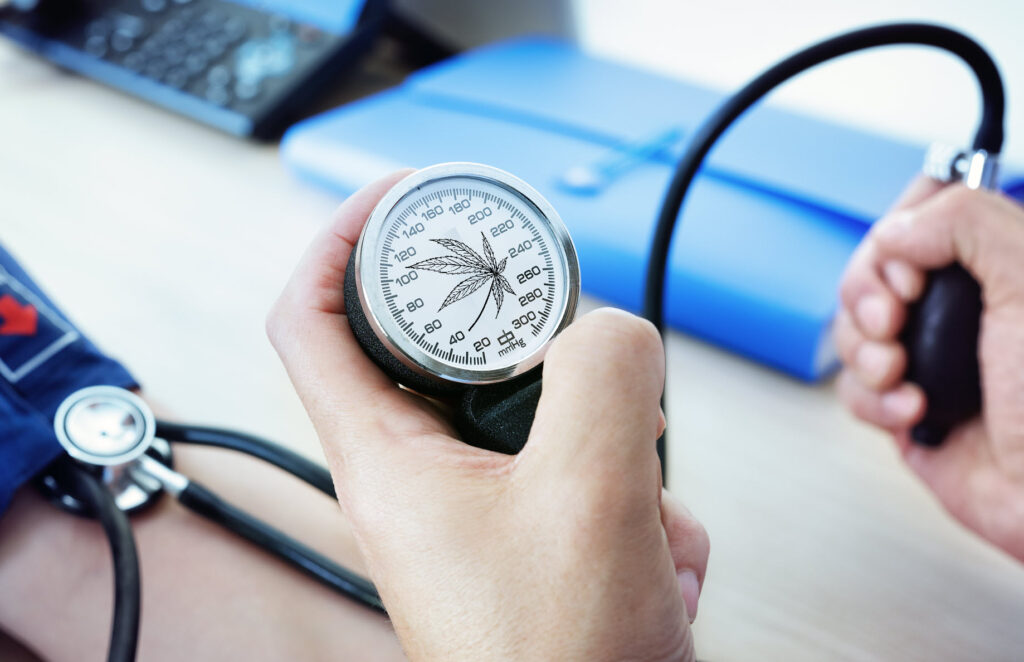It’s been found that cannabis can impact not only heart rate, but blood pressure too.
When we seek out alternative medications we’re often searching for the healthiest means to keep us well. Because some pharmaceuticals can potentially create negative side-effects, we must remain cautious when finding solutions to our health concerns, especially when it comes to our heart and circulatory system. It’s been found that cannabis can impact not only heart rate, but blood pressure too.
Therefore, using the plant as an alternative or supplemental medication must be properly examined on an individual basis regarding preexisting health conditions.
We’ve come to observe that some cannabis strains tend to increase heart rate, and this is due to its ability to relax blood vessels throughout the body. As they relax the heart must pump quicker to compensate for the resulting decrease in blood pressure. In a healthy individual, blood pressure tends to remain the same with no significant changes despite an increase in heart rate.
If a person already has high blood pressure, this means that the heart is working harder to pump blood through vessels that are either constricted or have plaque build-up, making it harder for blood to travel freely through the body. This puts strain on both the heart and the vessels, and can lead to their narrowing, rupturing, leaking, or clotting.
Because, more studies are needed observing the effects of cannabis use on high blood pressure, we can only assume thus far that for some people, cannabis may be able help relax constricted vessels, ultimately lowering blood pressure, thus helping the heart pump blood through the body with less effort. Animals studies have confirmed that cannabinoids can help reduce hypertension, but human studies are still needed to confirm whether the same outcome is consistent in people.

One study done with human participants looked at the cardiovascular effects of daily consumers that suddenly stopped using cannabis. In other words, the study looked at the cardiovascular withdrawal symptoms. The results were that blood pressure increased significantly, either indicating that the plant itself was keeping blood pressure low or that anxiety increased in participants which is one of the main possible causes of hypertension. Further investigation is needed to truly understand the withdrawal effects of cannabis.
If you have consulted with your physician and decide to see if cannabis may lower your blood pressure, it’s vital to investigate the many different strains, regarding both their cannabinoid and terpene contents. Indica and sativa strains create different effects on the mind and body, while terpenes tend to contribute to these effects as well. You’ll have to find the right strain for your lifestyle by trial-and-error, with the assistance of educated budtenders at your local dispensaries.
Anyone with low blood pressure should keep in mind that cannabis could possibly lower their blood pressure to a dangerous level, so it may be best to stay away from the plant altogether. While cannabinoids seem to offer different effects, such as THC accelerating heart rate while CBD lowers it, the medical community still doesn’t fully understand how much of each creates a safe balance in patients with cardiovascular problems.
For anyone, wondering whether cannabis produces harmful effects on the heart and blood vessels in a healthy human cardiovascular system, the short answer is ‘no’, but that is based on what little information the medical community has so far uncovered. We haven’t yet investigated long-term effects of cannabis use on the heart and blood vessels – and we also need to look at the different ways of consuming it to see whether smoking cannabis can be more harmful to the cardiovascular system than ingesting it.
Does marijuana lower or raise blood pressure?
To answer this question, we should focus on two of the primary cannabinoids present in cannabis : cannabidiol (CBD) and tetrahydrocannabinol (THC). Both may exert an influence on blood pressure levels.
Dr. Bonni Goldstein, a medical adviser to Weedmaps and the director of Canna-Centers in Lawndale, California, outlined the potential effects of THC on blood pressure:
“THC can affect blood pressure depending on the dose, the route of administration, a person’s experience with THC, and a person’s underlying health. Healthy volunteers that took THC had an increase in heart rate and decrease in blood pressure. In studies where people used THC while lying down, they had elevated blood pressure. When they stood up, their blood pressure dropped and they experienced low blood pressure.”
These sudden drops in blood pressure, also known as white outs or green outs, may indeed be linked to cannabis use. Dr. Melanie Bone, a board-certified OB-GYN and cannabis specialist who practices in West Palm Beach, Florida, told Weedmaps that “cannabis may cause a drop in blood pressure on standing — known as postural hypotension.” This type of drop in blood pressure is not desirable, as it can cause vertigo and even fainting. So, when we talk about “lowering blood pressure,” we do not necessarily consider that effect beneficial to health.
Both THC and CBD may lower blood pressure in different ways.
However, neither CBD nor THC should be considered a medical treatment for high blood pressure. Photo by: Gina Coleman/Weedmaps.

What are the cardiovascular effects of cannabis?
Another frequently asked question about cannabis and cardiovascular health is: can weed cause a heart attack?
First, let’s again distinguish between the cannabinoids THC and CBD. For example, CBD oils containing trace levels of THC may have very different effects than smoking a high-THC strain of marijuana. Various studies have indicated that THC may have detrimental effects on cardiovascular health, whereas CBD could be helpful to the heart.
Goldstein added, “CBD does not appear to have the same risks for the heart as THC and in fact, appears to be somewhat cardioprotective.” To support this assertion, Goldstein cited a 2010 study published in the Journal of the American College of Cardiology in which researchers concluded that CBD has therapeutic potential in treating complications of diabetes, as well as some cardiovascular disorders. Most notably, CBD could reduce inflammation, a condition that can ultimately damage the blood vessels, arteries, and vital organs. So, if you apply CBD oil to your skin or swallow a few tablespoons, the impact could differ greatly than if you smoked a blunt.
To this point, there is some research that suggests smoking THC could directly or indirectly lead to a heart attack. One 2019 study titled “The Cardiovascular Effects of Marijuana: Are the Potential Adverse Effects Worth the High?” and published in the Journal of the Missouri State Medical Association showed that some people experienced a heart attack within an hour of smoking cannabis.
Bone, however, argued, “On careful study, many of the patients also smoked cigarettes and were obese, making it hard to draw absolute conclusions. Also, the observations were made on cannabis of unknown origin, not cannabis from a dispensary.” The fact that the cannabis did not come from a registered dispensary is significant, as there is no available lab testing to determine what other compounds may have been present.
The bottom line is that there have been studies demonstrating a questionable association between smoking weed and having a heart attack, and more research is necessary.
Weed and blood pressure medication
You might also be wondering, what if you’re smoking weed while taking blood pressure medication? Will there be an adverse reaction? If you are smoking THC-rich cannabis and taking medication for high blood pressure, the answer is that there could be.
Goldstein explained, “Smoking cannabis can be harmful for those with heart disease or hypertension since the smoke contains carbon monoxide. This gas binds to the hemoglobin in red blood cells, displacing oxygen off of the red blood cells which results in less oxygen going to the body’s tissues, including the heart. People with heart disease or high blood pressure should avoid smoking.”
Instead, Goldstein recommends other methods of cannabis use, such as sublingual tinctures or edibles, which she says are safe to use if someone is on blood pressure medication.
Further, Bone stressed that people who use cannabis and are on blood pressure medications need to be mindful of the possibility of an interaction with other prescription medications. This means monitoring blood pressure and reporting any dizziness to your doctor, who can adjust your dosages accordingly.
Other effects of weed on blood pressure
There may be other effects of marijuana on blood pressure that health practitioners have yet to discover. All potential effects depend on the individual’s existing health problems, especially co-morbid conditions such as diabetes and obesity.
Can people without these conditions safely indulge in marijuana? A healthy individual’s body may appear as a well-oiled machine, but Bone disputes that analogy, pointing out that, “Unlike a car, where we replace the brakes or tires, the heart never gets a vacation and the blood vessels need to keep working forever. And the nervous system, which directs the show like a conductor, is on duty 24/7.”
Moderation, then, may be key in integrating a cannabis regimen into your healthcare plan. Consult with your physician before you begin using cannabis or CBD products and discuss any medications you are currently taking.

